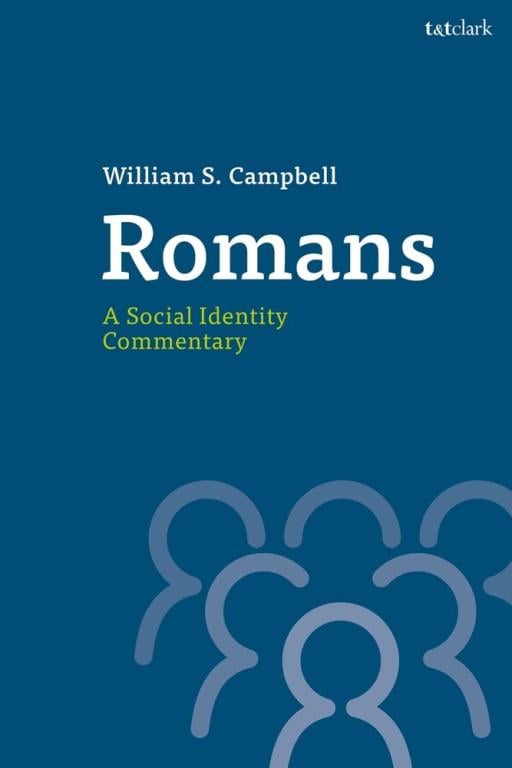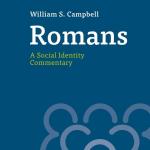While Bill Campbell and I agree that Paul is trying to inculcate a super-ordinate identity for his audience, one that goes beyond just being a Gentile for instance, or a Roman Gentile, I don’t agree with him that actually Paul is an advocate for two kinds of related super-ordinate identities, namely being part of Israel, or being part of the Gentile Christ followers, with some overlap between the two for Jewish followers of Christ like Paul himself. No, in my view the superordinate identity Paul is trying to inculcate for all Christ followers is Jew and Gentile united in Christ, and no he does not limit the term ekklesia to just assemblies of Gentile Christians.
Does Paul always distinguish Jew from non-Jew? No he does not. Gal. 3.28 says plainly there is neither Jew nor Gentile in Christ but all are one. Is Paul calling the meeting in Rome in the house of Aquila and Priscilla an ekklesia because it’s a meeting of only Gentiles? Obviously not since it’s in the home of two Jews! And frankly, most of the people that Paul names in much of Rom. 16 are Jews. It is entirely an argument from silence to suggest that since Paul only mentions ‘ekklesia’ once there must not be other ones in Rome, and that otherwise the Jewish Christians must be meeting in the synagogue. I agree that probably Jewish Christians were meeting separately from Gentile ones in Rome in various cases, but Rome does not involve house churches Paul himself established, which involved Jew and Gentile united in Christ, as for instance in Corinth. The discussion about the weak and the strong, or the persons with too many scruples about food etc. and those without surely involves Jews and Gentile followers of Christ both in 1 Corinthians and in Romans.
What about the notion that the terminology ‘ekklesia’ applied to the Christians in Judaea is Luke being anachronistic? This does not make sense in light of the fact that Paul in Galatians 1, referring to the pre-Christian persecution of Christ followers by himself clearly says he persecuted the church of God, which has to refer to Jews in Judaea!
For Paul the superordinate identity that he seeks to inculcate is not either being in Israel as an observant Jew or being the ethne in Christ, but rather a shared identity of Jew and Gentile—- being ‘in Christ’. Over 50 times in Paul’s letters do we have the phrase ‘en christo’ as the ultimate identity marker for both Jews like Paul and Gentiles like Titus in Christ. Paul believes that ultimately and finally when Christ returns he will turn away the impiety of Jacob=the rejection of the Jewish messiah by Jews, and they too will be saved by grace through faith in their messiah. In other words, Paul’s is definitely not a two track, two peoples of God model, especially not when for Paul God involves not just the Father but also the Son, and not just the Son but also the person of the Holy Spirit. The goal is not just everyone worshipping God the Father, the goal is Jew and Gentile redeemed by Christ and including Jesus the Lord within their worship, as Phil. 2.5-11 and also 1 Cor. 8.4-6 suggest. This is because Paul believes, in his modification of the Shema in 1 Cor. 8 that Christ the Lord is worthy of what only God is worthy of— worship of the one God of the Bible. Take for example Paul’s use of the phrase ‘in Christ’ in Rom. 12.5— clearly enough, it includes Paul himself, a Jew, since he says ‘we’ and it also includes his audience, predominantly Gentiles, but also some Jews. The division of apostolic labor between Paul and Peter did not exclude Paul from addressing some Jews in or outside the synagogue though his focus was on converting Gentiles, nor did it prevent Peter from evangelizing some Gentiles. The goal was that there be one body of Christ involving both Jews and Gentiles, even if currently Gentiles and Jewish Christians were mostly meeting separately in Rome. Rom. 3.24 is clear enough that salvation/ redemption happens for all persons ‘in Christ Jesus’ and not elsewhere. Also note, in 1 Cor. 1 tells us Paul baptized both Jews and Gentiles into this new corporate personality, something further explained in Rom. 6 to mean that the old self is dead and buried with Christ in baptism so that one could become a new creature in Christ.













